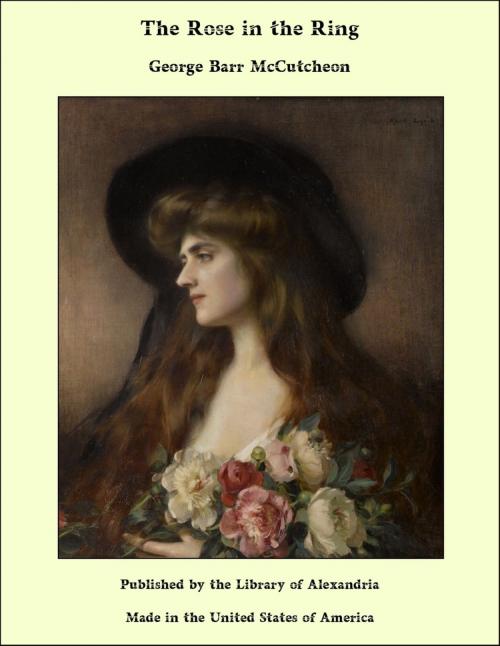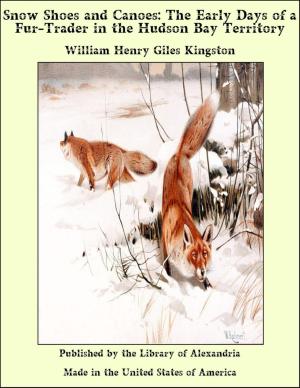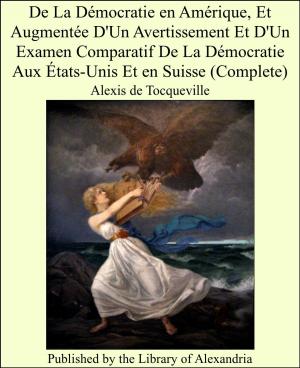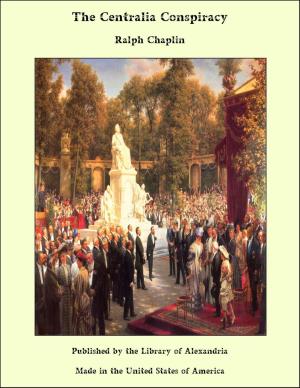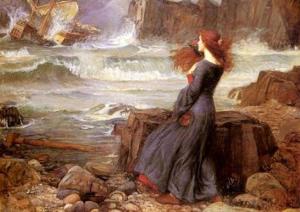| Author: | George Barr McCutcheon | ISBN: | 9781465614261 |
| Publisher: | Library of Alexandria | Publication: | March 8, 2015 |
| Imprint: | Language: | English |
| Author: | George Barr McCutcheon |
| ISBN: | 9781465614261 |
| Publisher: | Library of Alexandria |
| Publication: | March 8, 2015 |
| Imprint: | |
| Language: | English |
The gaunt man led the way. At his heels, doggedly, came the two short ones, fagged, yet uncomplaining; all of them drenched to the skin by the chill rain that swirled through the Gap, down into the night-ridden valley below. Sky was never so black. Days of incessant storm had left it impenetrably overcast. These men trudged—or stumbled—along the slippery road which skirted the mountain's base. Soggy, unseen farm lands and gardens to their left, Stygian forests above and to their right. Ahead, the far-distant will-o-the-wisp flicker of many lights, blinking in the foggy shroud. Three or four miles lay between the sullen travelers and the town that cradled itself in the lower end of the valley. Night had stolen early upon the dour spring day. The tall man who led carried a rickety, ill-smelling lantern that sent its feeble rays no farther ahead than a dozen paces; it served best to reveal the face of the huge silver watch which frequently was drawn from its owner's coat pocket. Eight o'clock,—no more,—and yet it seemed to these men that they had plowed forever through the blackness of this evil night, through a hundred villainous shadows by unpointed paths. Mile after mile, they had traversed almost impassable roads, unwavering persistence in command of their strength, heavy stoicism their burden. Few were the words that had passed between them during all those weary miles. An occasional oath, muffled but impressive, fell from the lips of one or the other of those who followed close behind the silent, imperturbable leader. The tall man was as silent as the unspeakable night itself. It was impossible to distinguish the faces of these dogged night-farers. The collars of their coats were turned up, their throats were muffled, and the broad rims of their rain-soaked hats were far down over the eyes. There was that about them which suggested the unresented pressure of firearms inside the dry breast-pockets of long coats. This was an evening in the spring of 1875, and these men were forging their way along a treacherous mountain road in Southwestern Virginia. A word in passing may explain the exigency which forced the travelers to the present undertaking. The washing away of a bridge ten miles farther down the valley had put an end to all thought of progress by rail, for the night, at least. Rigid necessity compelled them to proceed in the face of the direst hardships. Their mission was one which could not be stayed so long as they possessed legs and stout hearts. Checked by the misfortune at the bridge, there was nothing left for them but to make the best of the situation: they set forth on foot across the mountain, following the short but more arduous route from the lower to the upper valley. Since three o'clock in the afternoon they had been struggling along their way, at times by narrow wagon roads, not infrequently by trails and foot paths that made for economy in distance.
The gaunt man led the way. At his heels, doggedly, came the two short ones, fagged, yet uncomplaining; all of them drenched to the skin by the chill rain that swirled through the Gap, down into the night-ridden valley below. Sky was never so black. Days of incessant storm had left it impenetrably overcast. These men trudged—or stumbled—along the slippery road which skirted the mountain's base. Soggy, unseen farm lands and gardens to their left, Stygian forests above and to their right. Ahead, the far-distant will-o-the-wisp flicker of many lights, blinking in the foggy shroud. Three or four miles lay between the sullen travelers and the town that cradled itself in the lower end of the valley. Night had stolen early upon the dour spring day. The tall man who led carried a rickety, ill-smelling lantern that sent its feeble rays no farther ahead than a dozen paces; it served best to reveal the face of the huge silver watch which frequently was drawn from its owner's coat pocket. Eight o'clock,—no more,—and yet it seemed to these men that they had plowed forever through the blackness of this evil night, through a hundred villainous shadows by unpointed paths. Mile after mile, they had traversed almost impassable roads, unwavering persistence in command of their strength, heavy stoicism their burden. Few were the words that had passed between them during all those weary miles. An occasional oath, muffled but impressive, fell from the lips of one or the other of those who followed close behind the silent, imperturbable leader. The tall man was as silent as the unspeakable night itself. It was impossible to distinguish the faces of these dogged night-farers. The collars of their coats were turned up, their throats were muffled, and the broad rims of their rain-soaked hats were far down over the eyes. There was that about them which suggested the unresented pressure of firearms inside the dry breast-pockets of long coats. This was an evening in the spring of 1875, and these men were forging their way along a treacherous mountain road in Southwestern Virginia. A word in passing may explain the exigency which forced the travelers to the present undertaking. The washing away of a bridge ten miles farther down the valley had put an end to all thought of progress by rail, for the night, at least. Rigid necessity compelled them to proceed in the face of the direst hardships. Their mission was one which could not be stayed so long as they possessed legs and stout hearts. Checked by the misfortune at the bridge, there was nothing left for them but to make the best of the situation: they set forth on foot across the mountain, following the short but more arduous route from the lower to the upper valley. Since three o'clock in the afternoon they had been struggling along their way, at times by narrow wagon roads, not infrequently by trails and foot paths that made for economy in distance.
